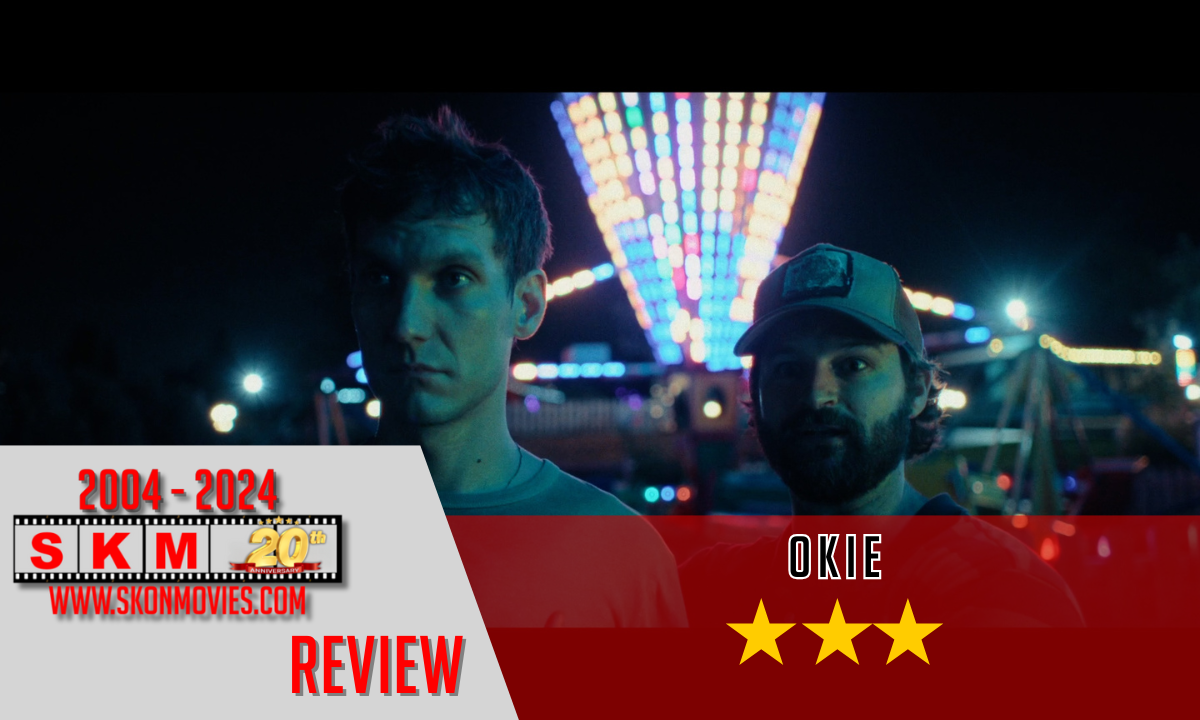A writer returns to his hometown and deals with the repercussions of using the people he knew as characters in his books in Okie. Louie Mulgrin (Scott Michael Foster) is a wealthy writer, who has returned to his rural hometown to collect some items from the house of his recently deceased father. Louis catches up with people in the town, including his old friend Travis Young (Kevin Bigley) and ex-girlfriend Lainey Gambie (Kate Cobb). “Lucky Louie” has become infamous in the town, as he had used the people he knew as inspiration for the characters in his novels, some of whom aren’t happy with their depiction or lack thereof. As the days go by, Louie’s grip on reality slips, as he wonders if the townsfolk have payback on their mind.
Okie Synopsis
Okie is the feature directorial debut of actor Kate Cobb (Parked), based on a script written by her husband and fellow actor Kevin Bigley (The Wretched). The film stars Scott Michael Foster as Louie Mulgrin, a famous writer who has long since left the rural town he grew up in behind, with him engaged to be married to his girlfriend Bridgette (Rochelle Therrien). After the death of his father, Louie returns home for the first time in years, expecting to just pick up a few things and leave. However, after his car breaks down, Louie is forced to spend a few days in town and reconnect with his friends, including butcher Travis, played by Bigley, and his ex-girlfriend Lainey, played by Cobb.
While in town, Louie begins to forget to take his medications and begins to have visions of his father. He is also shocked to learn that he has lost all sense of time, forgetting how many days he has spent at home. This all comes to a climax when Louie takes shrooms with Travis and visits the town’s annual county fair.
My Thoughts on Okie
Okie very much comes off as a first feature for director Kate Cobb. For a low-budget, independent production, the film is relatively well produced. However, the plot of the film seems to have too many eggs in its basket, which results in many threads of the film coming off as unresolved. The biggest of these is the unknown mental health condition that the protagonist Louie is suffering from, with plot developments suggesting that it is some form of schizophrenia.
The main conflict of the film involves the fact that Louie exploited the lives of the people he grew up with by making them characters in his successful series of novels. This results in him getting the nickname “Lucky Louie,” simultaneously out of reverence and disdain. Out of the people from his formal life, the one Louie reconnects with the best is Laney, though even she reacts poorly when Louie offers to give financial assistance.
With his deteriorating mental health, Louie becomes an unreliable narrator of sorts in Okie, as the events of the film are shown from his perspective. This includes what I would describe as a hallucinatory copout towards the end of the film. While the plot of Okie seems to be about Louie having to face up to how wrong he was to exploit the people of his hometown, it comes at the expense of a not-very-flattering depiction of someone with mental illness. By the time credits rolled on Okie‘s sudden and ambiguous ending, all I could do is just shrug my shoulders.


